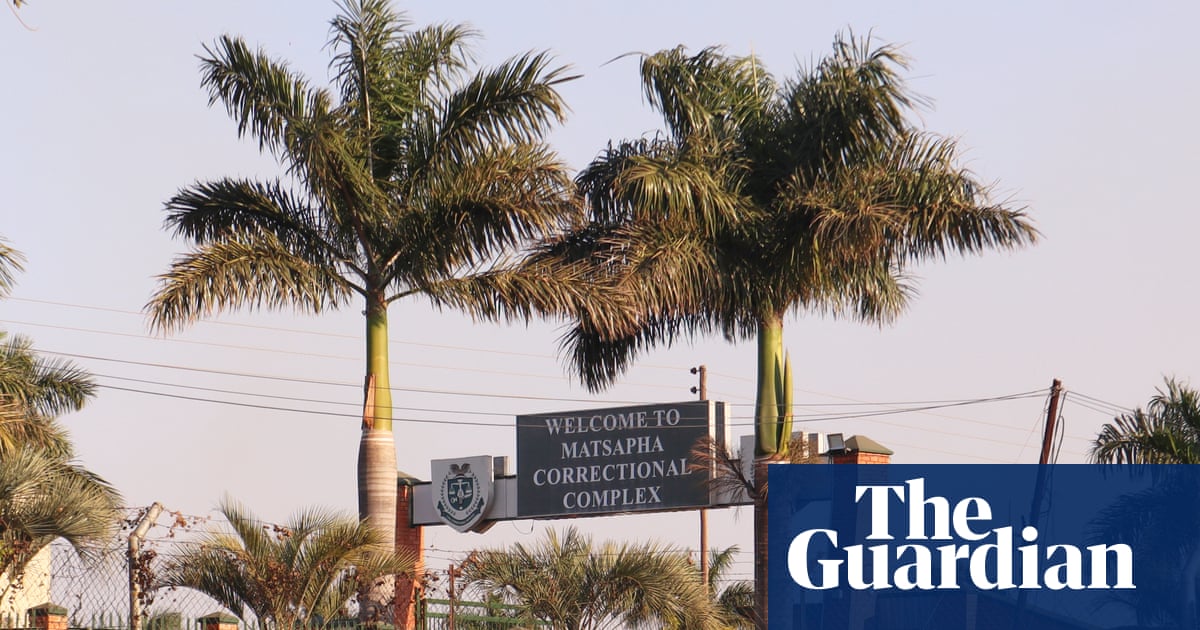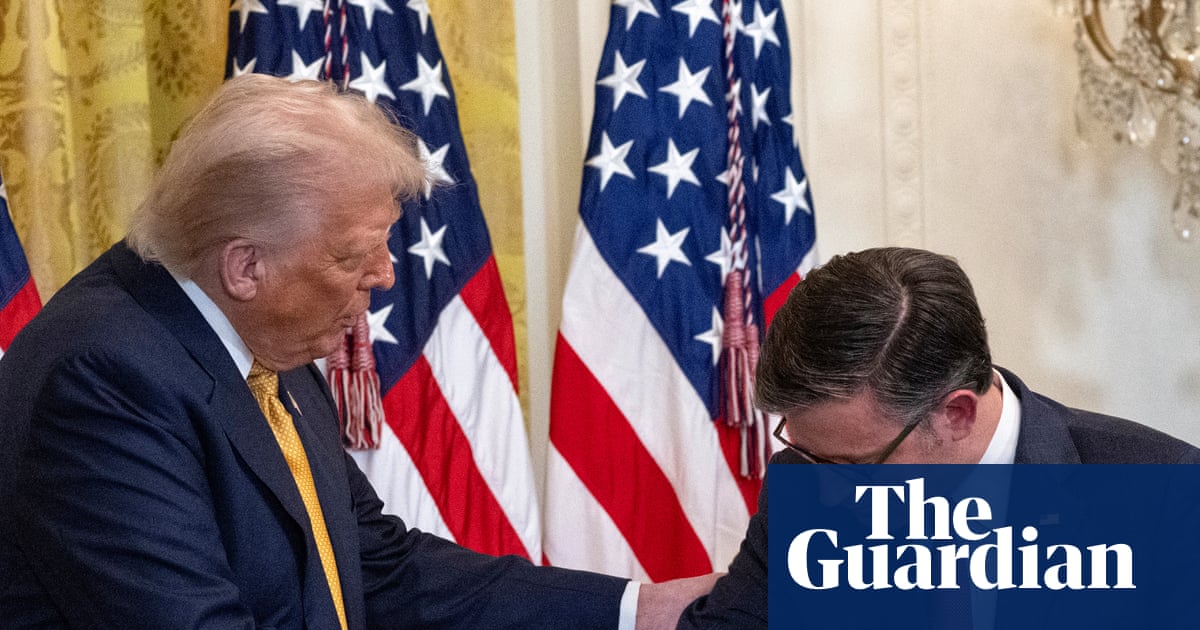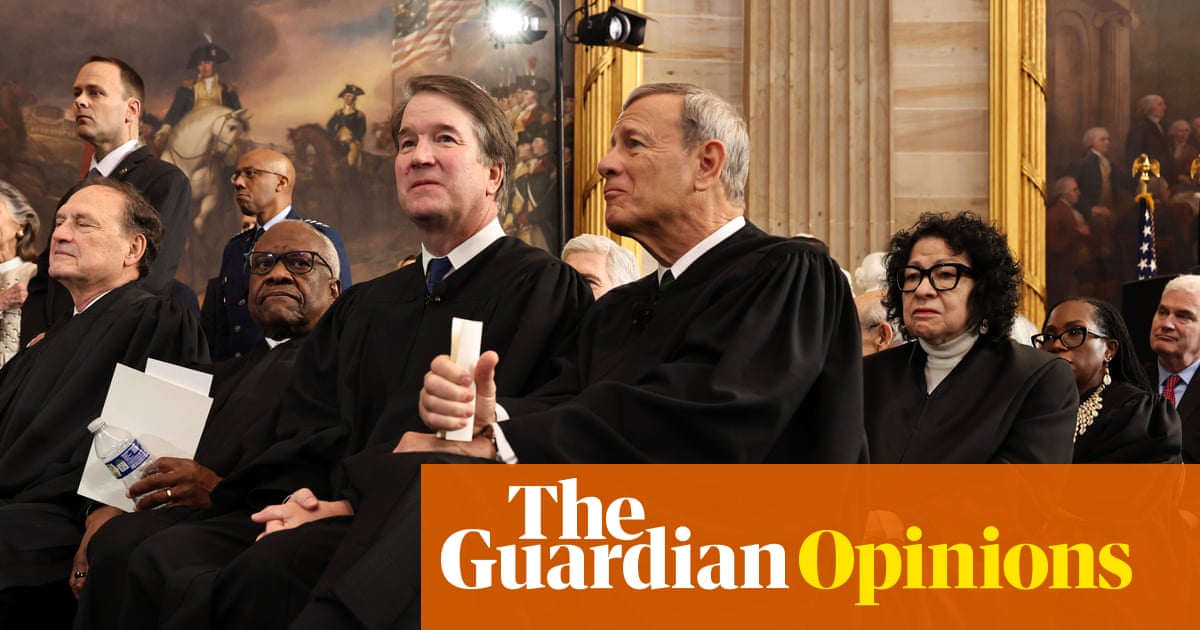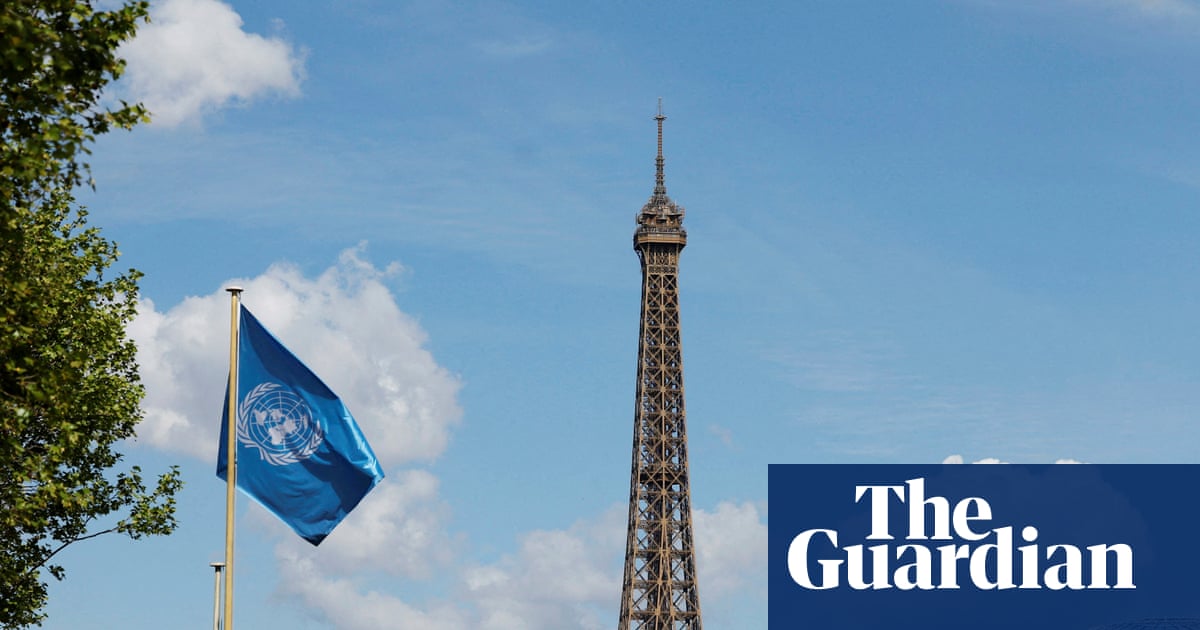A trial over the extraordinary measures taken by the Trump administration to detain foreign scholars over their pro-Palestinian speech revealed previously unknown details about the extent to which immigration officials broke with precedent in their campaign against university activists.
The case, which was brought by the national American Association of University Professors (AAUP); its Harvard, Rutgers and New York University chapters; and the Middle East Studies Association (Mesa) after the arrest of several noncitizen students and scholars who had been outspoken about Palestinian rights, marked the first time the administration was asked to defend its position that it has the authority to deport noncitizens over constitutionally protected speech.
The plaintiffs argued the government’s actions amounted to an illegal “ideological deportation” policy.
“The Trump administration is imprisoning and expelling people because of their political viewpoints,” said Jameel Jaffer, executive director of the Knight First Amendment Institute, which represented the plaintiffs along with the law firm Sher Tremonte. “It would be difficult to conceive of a policy more offensive to the first amendment, or to the values the first amendment was meant to serve.”
While the four arrested scholars – including the Columbia University graduate Mahmoud Khalil and Tufts University student Rümeysa Öztürk – have all been released from detention while their legal cases proceed, others have left the country to avoid arrest and one is in hiding.
The trial ended in Boston on Monday. The judge in the case, Reagan appointee William G Young, is not expected to rule on the case for at least a few weeks. Any decision he makes will almost certainly be appealed, possibly up to the US supreme court.
These are some of the revelations that came out of the trial.
1. The Trump administration relied on lists from shadowy pro-Israel groups
Among the trial’s most explosive revelations was the fact that the government relied on dossiers compiled by the rightwing Canary Mission, a secretive, pro-Israel group dedicated to doxing thousands of pro-Palestinian students, scholars and activists, as well as information by the far-right Zionist group Betar USA, which even the pro-Israel Anti-Defamation League lists as an extremist organisation.
Both Canary Mission and Betar had been involved in compiling “deportation lists”, sending “thousands of names” to government officials. While that had been previously reported, the testimony of senior US immigration officials revealed for the first time the extent to which the government relied on such lists.
Peter Hatch, a senior official within Immigration and Customs Enforcement’s Homeland Security Investigations (HSI) division, testified that the agency assembled a group of officials – known internally as the “Tiger Team” – dedicated to investigating student protesters. The team rapidly compiled more than 100 reports based on a list of 5,000 individuals identified on the Canary Mission website. The dossiers the agency compiled on Öztürk, Khalil and others highlighted their pro-Palestinian speech, Hatch testified, included their Canary Mission pages, as well as, in Öztürk’s case, an op-ed she wrote in a student paper.
“The direction was to look at the website,” Hatch said in court. “That we should look at the individuals named in the Canary Mission website.”
2. Immigration officials admitted to the unprecedented nature of the arrests
Four of the officers involved in Öztürk and Khalil’s arrests, as well as in the arrests of Columbia graduate Mohsen Mahdawi and Georgetown postdoctoral fellow Badar Khan Suri, said that orders to prioritize the scholars had come from high up within the Trump administration.
They also admitted they had never taken part in such arrests before.
A New England Immigration and Customs Enforcement (Ice) agent involved in Mahdawi’s arrest, William Crogan, said that he had never seen a noncitizen removed from the US based on similar factual allegations and that his superiors had ordered him to prioritize the case. Patrick Cunningham, an Ice agent in Boston, said the same of Öztürk’s case, while Darren McCormack, an agent in New York, said that the request to arrest Khalil was unusual and that he was told the US secretary of state, Marco Rubio, and the White House were specifically interested in Khalil’s case.
Andre Watson, a senior HSI official, testified that early in the Trump administration, Ice and the state department coordinated on a new process to implement the president’s executive orders targeting student protesters.
3. The government tried to block the release of documents
During the trial, the government’s attorneys sought to block the release of documents detailing its processes and reasons for revoking student visas and issuing determinations of removability for green card holders such as Khalil and Mahdawi.
The records for only five of the targeted students were released in the end; many others were not. The government also succeeded in blocking the release of a state department report detailing the administration’s policies on the matter.
The government has claimed the authority to deport noncitizens who have committed no crimes but whose presence it deems poses a threat to US foreign policy and national security, and it has said that the students’ presence in the US interfered with its stated efforts to combat antisemitism.
The US Department of Justice did not immediately respond to a request for comment but in court filings it called claims of an ideological deportation policy the product of plaintiffs’ “imagination”.
But John Armstrong, the most senior official at the state department’s bureau of consular affairs, admitted under questioning that statements critical of Israel or US foreign policy could qualify noncitizens for deportation. He also admitted that officials who were instructed to compile allegations about the individuals targeted received no guidance about what constitutes antisemitism even as they sometimes invoked “antisemitic conduct” in their memos.
The administration’s lawyers have also equivocated on whether noncitizens have the same constitutional rights as US citizens, at one point saying they do, but later adding that there are “nuances” related to national security, immigration and foreign policy matters.
4. A huge chilling effect
Both citizen and noncitizen scholars testified about the climate of fear created by the arrests.
Megan Hyska, a Canadian philosophy professor at Northwestern University in Chicago, said in court that she decided not to publish an op-ed she had written about organising resistance to the Trump administration’s policies out of fear of being targeted for arrest.
Nadje Al-Ali, a German anthropologist and former director of the Center for Middle East Studies at Brown University, said she canceled plans to travel abroad and stopped pursuing research related to Palestine because of similar concerns.
Veena Dubal, the AAUP’s general counsel, testified that the government’s fearmongering campaign has fundamentally altered the group’s activities. She said that members who had previously been very active within the group stopped attending meetings.
Aslı Bâli, Mesa’s president, warned in a statement to the Guardian that the impact of the government’s policies risked only growing worse.
“The government is abducting individuals, and thereby separating families and squandering public resources, purely on the basis of protected political speech that they disagree with,” she said. “They need to be held to account, and our rights need to be defended, because otherwise we will find these protections gone – and the chilling effect will be pervasive.”

 German (DE)
German (DE)  English (US)
English (US)  Spanish (ES)
Spanish (ES)  French (FR)
French (FR)  Hindi (IN)
Hindi (IN)  Italian (IT)
Italian (IT)  Russian (RU)
Russian (RU)  12 hours ago
12 hours ago
























Comments